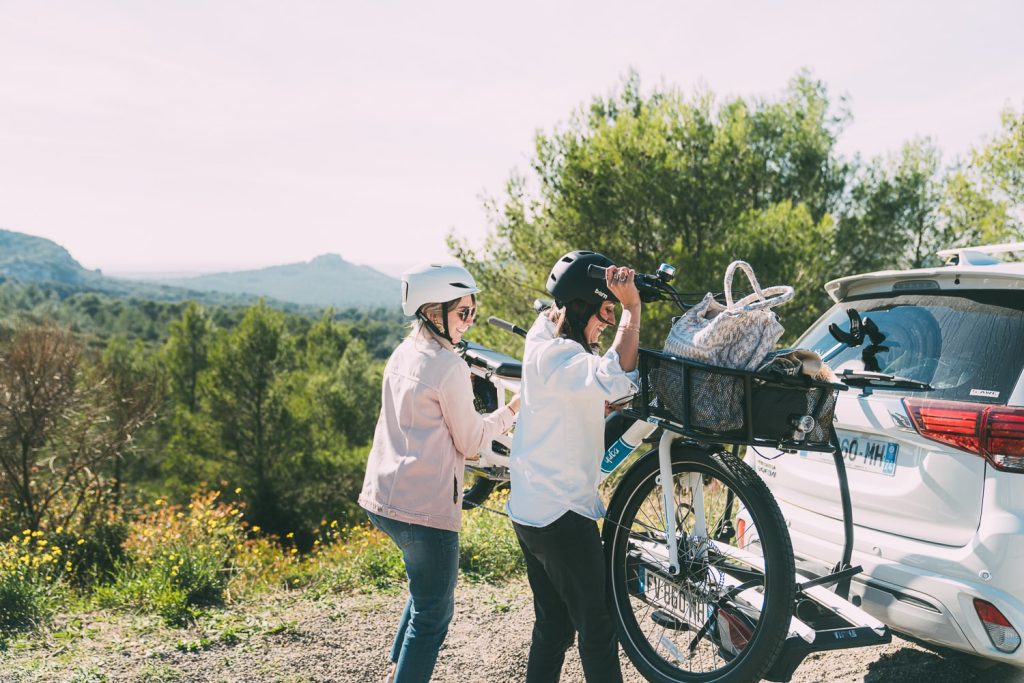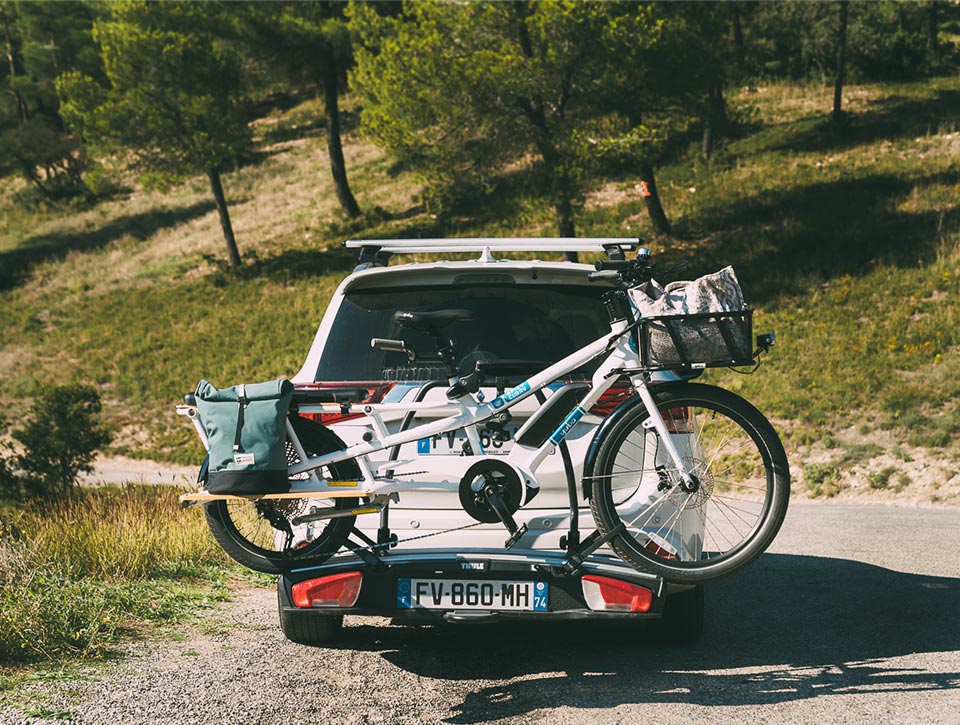Cargo Bike Racks: Let’s check-In!
The Basic Rules
First and foremost, follow the directions closely of the bike rack manual in order to properly secure it to the car. Respecting the instructions will reduce the risk of losing your cargo and, of course, accidents.
One of the key points is to respect the maximum load of each of the elements involved. We often consider the load of the bike rack itself, but what about the rest?
-
Maximum load of the bike rack
-
Maximum load of the hitch
-
Maximum load of the car
Next Steps
Make sure that the bikes are securely attached to the rack. You can ensure further safety by adding cargo straps or bungee cords to secure the load. Check the tightness of the rack harnesses and the additional straps from time to time to help ensure that everything is properly attached and to prevent the bikes from falling.
Keep in mind the speed limits indicated on the bike rack. Some are limited to 130 km/h to ensure the proper functionality of the rack.
In the same vein, the vibrations from driving will shake the bikes – it is important to think about taking off all accessories that may pop off (display, battery,etc.).
Information regarding the payload of the bike rack will normally be signaled with a graphic on the packaging. The maximum load is divided by the load assigned to each bike. It is important to note that cargo bikes are heavier than conventional bikes. For Yuba bikes specifically, we recommend a bike rack that supports up to 60 kg – 30 kg per bike, 2 bikes.
The Maximum Load of the Hitch
Hitch balls have different maximum loads depending on the vehicle and the tow bar. The bike rack company usually communicated this information to ensure the correct usage of their products. For cargo bikes, try to choose a hitch with a vertical load greater than 90 kg.

| Max width : bike + rack | Mandatory Lighting | Registration | Signage / Other | |
| FRANCE | Max 250cm | Registration and headlight visible. If not, provide a ramp and a separate plate. | If protrudes more than 40 cm – mandatory lighting in the front and red lighting in the rear. | |
| BELGIUM | Registration and headlight visible. If not, provide a ramp and a separate plate. | Bike rack 13-pin connector mandatory | ||
| SWITZERLAND | Max 200cm Max protrusion on the sides 20cm | Registration and headlight visible. If not, provide a ramp and a separate plate. | Over 1m protrusion, clear signage is required | |
| NETHERLANDS | Max 200cm Max protrusion on the sides 20cm | Registration and headlight visible. If not, provide a white license plate and ramp. | ||
| GERMANY | Max 255cm | |||
| ITALY | An excess of 30% of the car authorized at the rear (in length) | Mandatory red light at night | Registration and headlight visible. If not, provide a white license plate and ramp. | Warning sign (50cm x 50cm) at all times (5 diagonal red lines). Put 2 if needed (super large bike rack). |
| SPAIN | An excess of 10% of the car authorized at the rear (in length) | Registration and headlight visible. If not, provide a white license plate and ramp. | Minimum 1 sign at the back of the bike rack (3 diagonal red lines). 2 panels if the bike rack takes up the whole width of the car. | |
| PORTUGAL | Bike and Rack must not protrude from the vehicle on the sides. 45 cm allowed at the back (length) | Registration and headlight visible. If not, provide a white license plate and ramp. | Verification of documents, bike racks, and the use of both must be approved. | |
| SWEDEN | White registration mounted on the bike rack + FR sticker on the side of the plate. Registration and headlight visible. If not, provide a headlight ramp. |

